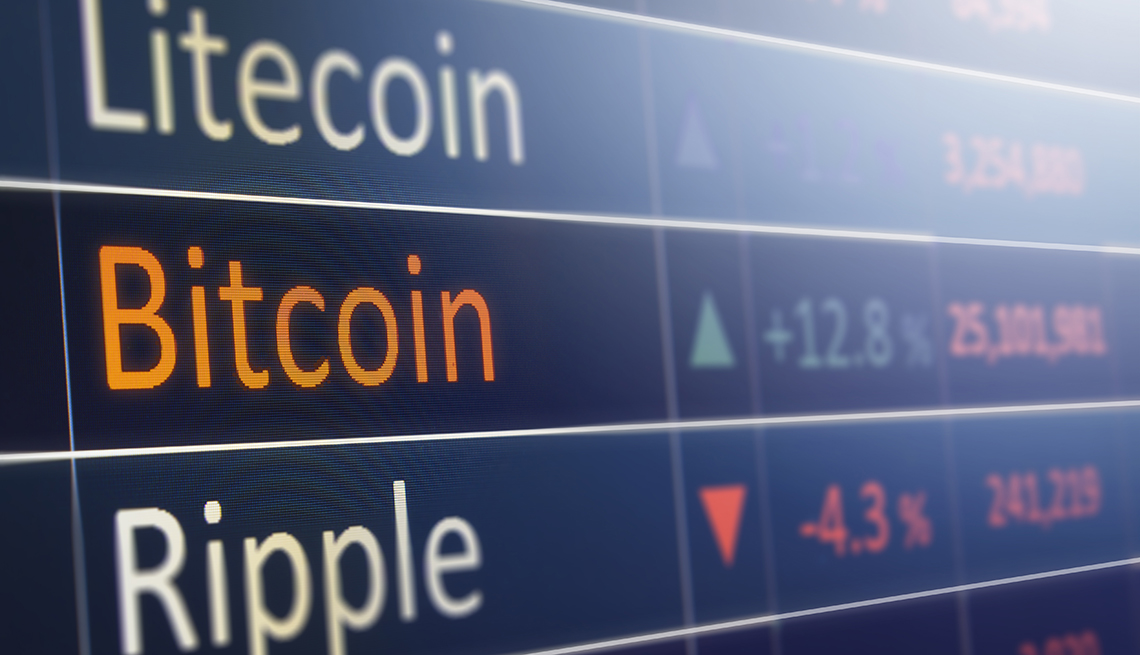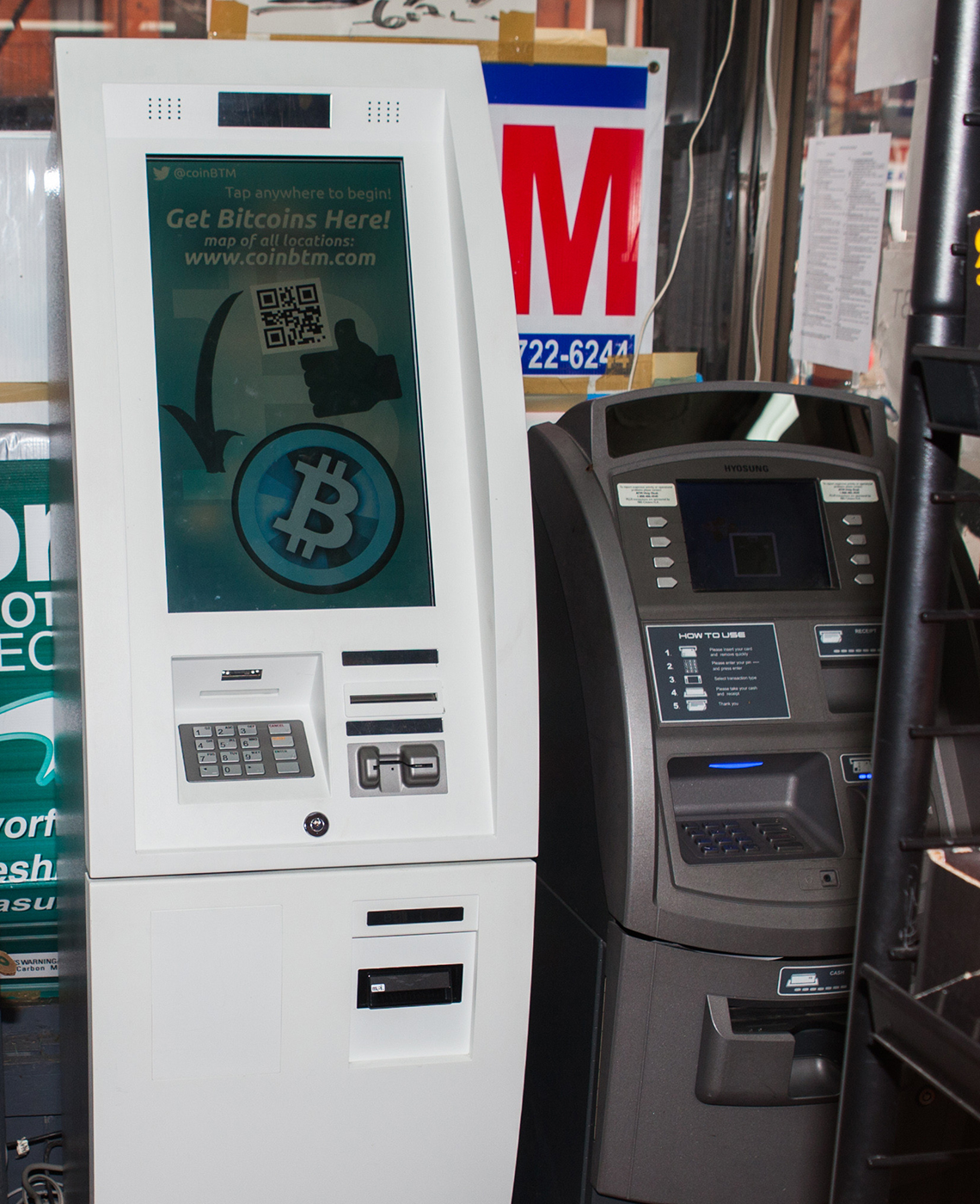It was worth $400 five years ago, but more than $60,000 in mid-April. You can buy it at a grocery store or gas station by using one of the 32,300 ATMs selling it. And it plays a leading role in many scams now targeting older Americans.
It's Bitcoin, a type of money that bears little resemblance to what people have understood money to be for centuries. It's not issued by any country. There are no Bitcoin printing presses or mints. It exists only on computers.
A huge industry has sprung up around Bitcoin. Major companies like PayPal, Dish Network and Overstock.com are now accepting it as payment. Elon Musk's electric car company, Tesla, spent $1.5 billion on it in January. But just because this currency is hitting the mainstream doesn't mean it's for everyone. Here's what you need to know so you won't get burned.
Where do you find it?
Contrary to what its name implies, Bitcoin exists only as digital code. Transactions are conducted and verified via a digital ledger, known as a blockchain, using a network of computers; the virtual money itself is stored in what's known as a digital wallet. If you want to buy Bitcoin, you don't have to buy a full one; you can purchase tiny fractions — and do so online through Bitcoin exchanges such as Coinbase, Binance and Gemini, or at one of the many ATMs in the U.S. that sell it.
Where did it come from?
Bitcoin's origin story has all the makings of a whodunit: It was launched in 2009 by someone (or someones) using the pseudonym Satoshi Nakamoto, who published a paper online proposing a currency that didn't need to go through a financial institution. More than a decade later, after billions of dollars worth of transactions in Bitcoin and despite the efforts of many would-be detectives, it's still uncertain who created it.
What's a Bitcoin worth?
Whatever people decide on a particular day. Lately, that's around $50,000; in late 2017 it was $19,000, but in early 2019 it was $4,000. If people feverishly pour money into Bitcoin, the value rises. But if demand drops, that value can plummet. The same is true of the other digital currencies, known as cryptocurrencies, created in recent years. That's not necessarily crazy; this notion of “implied value” holds true to some extent for almost anything, be it stocks, houses or antiques.
Why would people be interested in it?
There are three main reasons. One is that it's outside the traditional financial system. Since transactions don't need to go through governments or banks, it's easier to send and spend money across national borders. Second, you can preserve your anonymity in a transaction. There are legitimate reasons for wanting either of those benefits — but there are criminal reasons as well (more about that later).
The third reason to buy Bitcoin is as an investment: You pay a certain price in the hopes you can sell it later at a higher price — the same reason you might buy stock or real estate.
Why would you want to stay away?
There are many reasons. Transaction fees can be hefty — the equivalent, in some cases, of paying $20 to withdraw $100 in cash from an ATM. Security is poor at many exchanges where people hold Bitcoin and other cryptocurrencies. Charles Sachs, a Miami investment adviser, says that when he tried to retrieve the small amount he held, “The exchange was gone, and they'd stolen everyone's coins.” In such cases, there's no FDIC, credit card issuer or bank to make you whole.
As an investment, Bitcoin has no built-in power to produce further wealth. Stocks, in contrast, give you a share of a company's future profits, while real estate can generate rent. Bitcoin gives you nothing but a unique bit of digital code whose value can change erratically. A single tweet from Musk in mid-May, for example, sparked a 13 percent drop in Bitcoin's price in just two hours. It's like money you put in a slot machine, says Nashville financial planner Shaun Melby: “You absolutely should not put in one dollar more than you can afford to lose."
What if someone asks me to pay in Bitcoin?
Chances are it's a fraud. Increasingly, scammers are asking targets to pay with Bitcoin because it is nearly impossible to trace. “Scammers have latched on to crypto-currencies in the last year or two,” says Amy Nofziger, director of victim support for AARP's Fraud Watch Network. One recent fraud involved sending people emails containing threats to make public supposed recordings of them watching pornography — unless they pay a ransom in Bitcoin. Criminals are also asking for Bitcoin payments in romance scams; they befriend you online, then ask for financial help.
Does the government accept Bitcoin payments?
No. The IRS and other government agencies don't accept cybercurrencies as a payment and would never ask you to pay that way. If someone does, it's a scam.
Kate Rockwood has written about money for Real Simple; O, The Oprah Magazine; and other publications.
"What" - Google News
May 27, 2021 at 10:11PM
https://ift.tt/3wEaMj4
What Is Bitcoin? - AARP
"What" - Google News
https://ift.tt/3aVokM1
https://ift.tt/2Wij67R
Bagikan Berita Ini

















0 Response to "What Is Bitcoin? - AARP"
Post a Comment